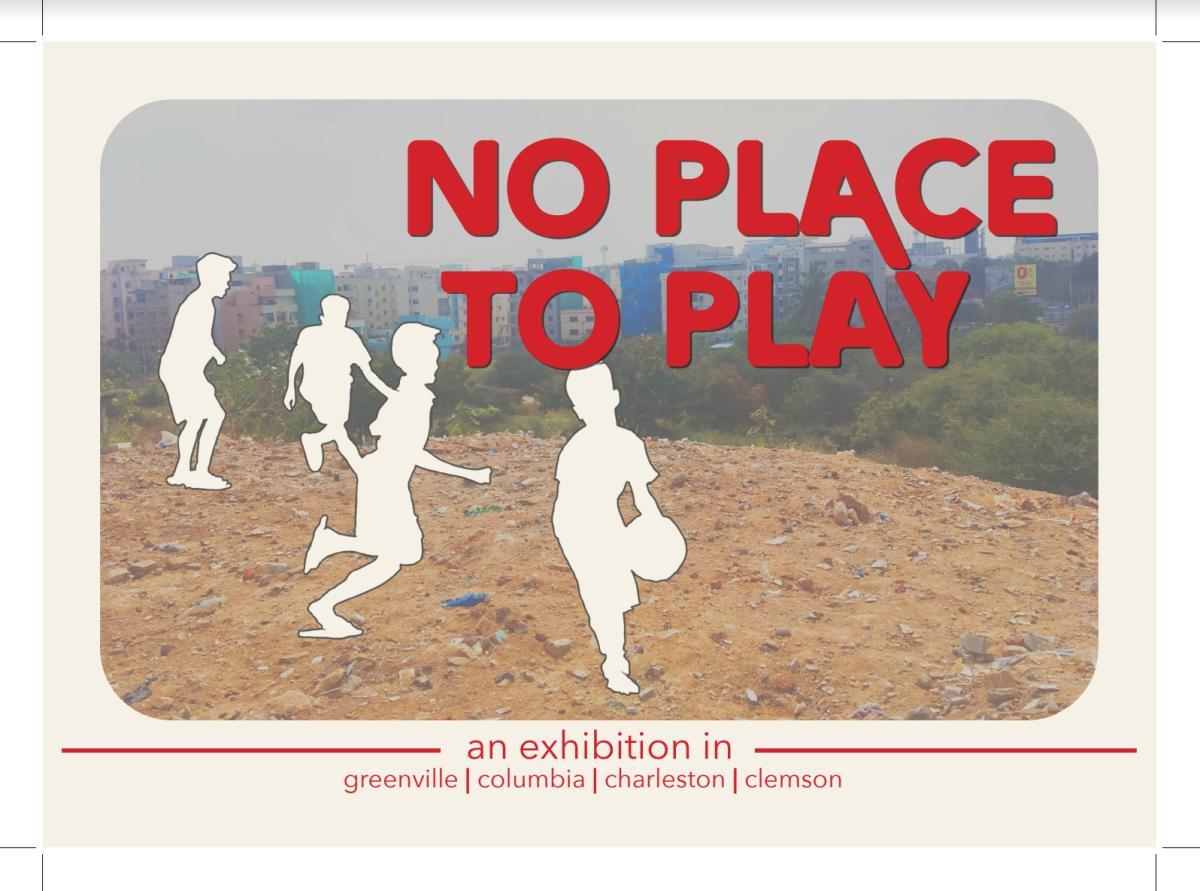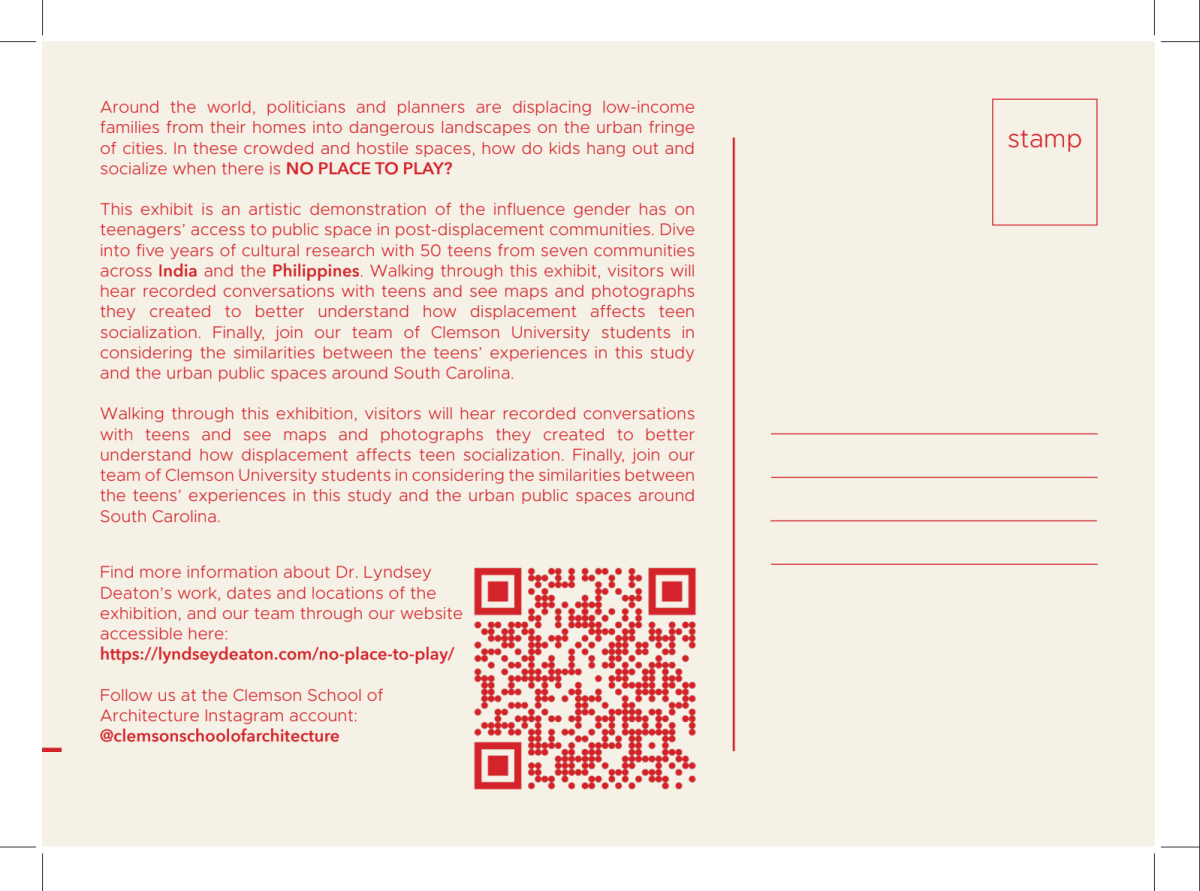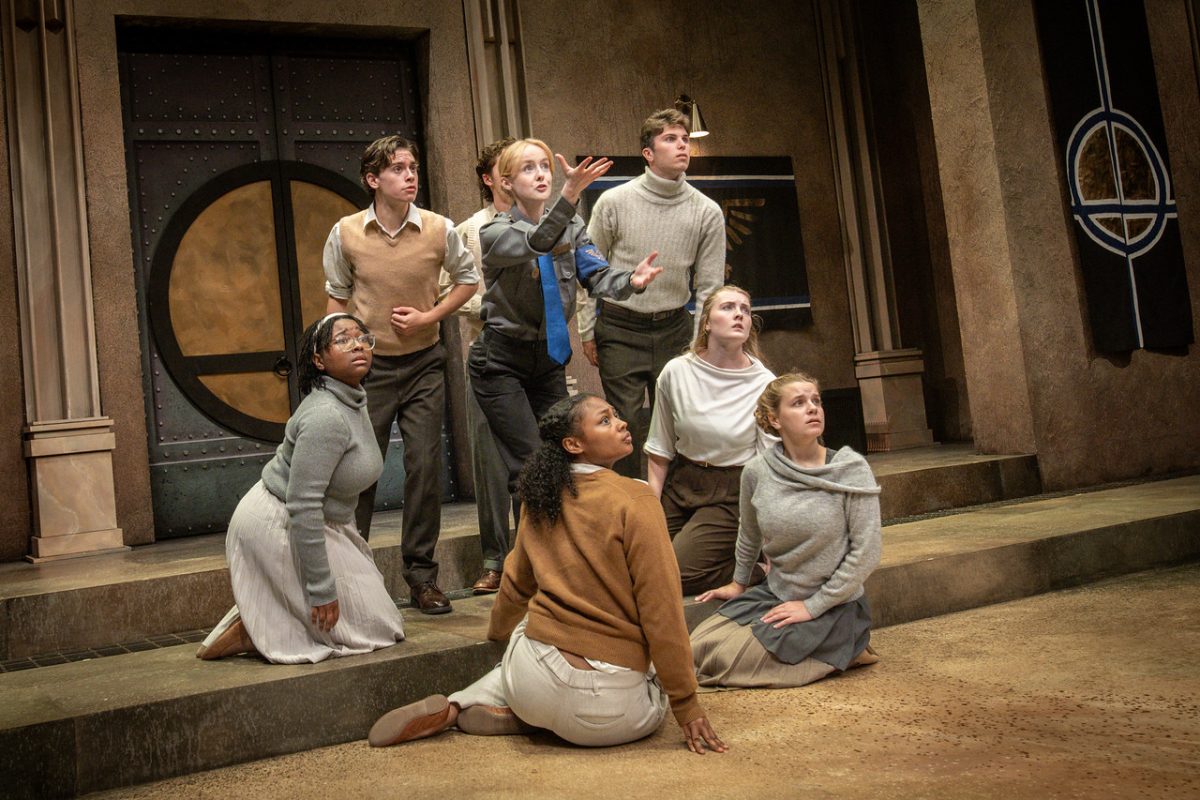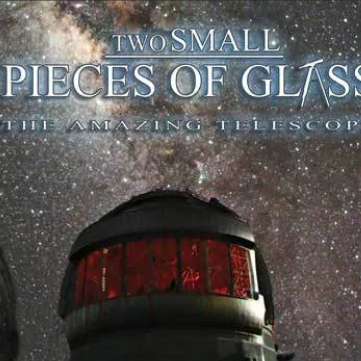A Clemson Creative Inquiry led by assistant professor Lyndsey Deaton set out to answer the question of how children of displaced families are able to socialize when they lose their place to play.
Their work examines gender inequality regarding the accessibility of the “third space,” which is rooted in a psychosocial theory that designates the first space as the home, the second as the workplace and the third as another safe environment. For these children, this would mean somewhere to play; but after being displaced by the government, they grow up without it.
With five years of research surrounding 50 teens from India and the Philippines, Deaton says she felt compelled to apply her findings in the CI because “it’s really important for undergrads and grads to understand the connection between research and the practice.”
Considering the many majors and backgrounds the students bring to her CI, Deaton sought to emphasize that all development “is done better when you learn how to work with, talk to and see through the eyes of people who don’t look like you. Kids are often an overshadowed, under-considered and underprivileged group of people. So, by allowing undergrads and grads to work with and see through the eyes of kids, especially kids in lower-income communities, they’re getting that hands-on experience.”
For dates and location details, scan the QR code or visit https://lyndseydeaton.com/no-place-to-play/.
Categories:
No Place to Play: A Clemson Creative Inquiry
Sydney Olsen, TimeOut Editor
April 6, 2023
JORDAN O’CONNOR, JALYN HAYNES // PROVIDED
0
Donate to The Tiger
Your donation will support the student journalists of Clemson University. Your contribution will allow us to purchase equipment and cover our annual website hosting costs.
More to Discover










